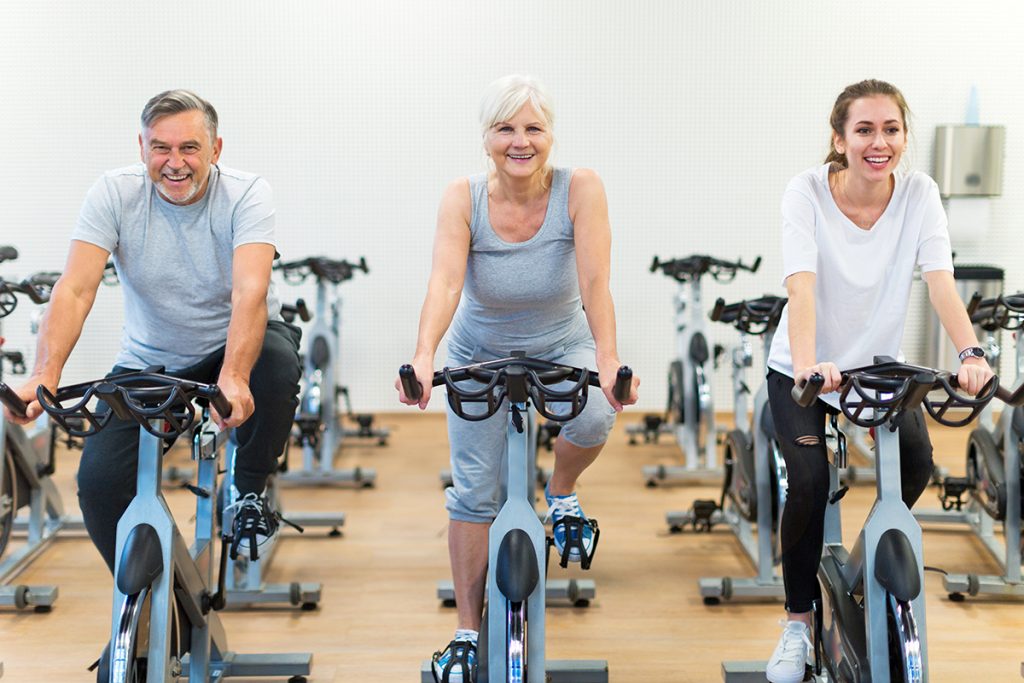Time dictates so many aspects of our lives. When beginning this article, I thought to myself how much time controls my day from the seconds, minutes, and hours. And of course in relation to this piece of writing, it is the measure of our age. The aging process is unique to each of us. But ultimately, it does impact our life decisions, and that includes our exercise choices. So let’s take a look at the relationship between aging and exercise.

Naturally, activity level changes when we get older. As one of my long time clients put it, “Man, I don’t just roll out of bed anymore ready to go”. This isn’t to say that one is less motivated, rather, the energy expenditure levels are different. This is mainly due to the fact that, “A major fraction of total daily energy arises from resting metabolism, and it is thus important to note that resting metabolism decreases with aging, by about 10% from early adulthood to the age of retirement, and a further 10% subsequently.” (1) Adding to this, “One reason is the loss metabolically active muscle mass and parallel increase in metabolically inert depot fat. In later old age, there may also be some overall reduction in cellular metabolism.” (1) When muscle mass decreases, this can cause body fat to increase. Keeping the excess pounds off can get harder. As such, “Your body fat can increase by up to 30 percent, which leads to a loss of lean muscle tissue and can affect your sense of balance. This can make it difficult for you to perform exercise activities you once enjoyed.” (2)
We need to continue a strength training program in order to not let our bodies replace muscle with fat at the rate it would like to. Not to use a scare tactic but here you go: “Strength peaks around 25 year of age, plateaus through 35 or 40 years of age, and then shows an accelerating decline, with 25% loss of peak force by age of 65 years.” (1)
Exercise becomes so extremely important as we grow older. We tell ourselves that we used to be able to eat whatever we wanted and still look fabulous, but now the odds aren’t necessarily the same anymore. We have to take care of our bodies, and we can help prevent certain diseases with exercise. For example, “Your bone mass begins to decline once you enter your thirties, putting you at risk for conditions such as osteoporosis. If you are concerned about developing this condition, perform more weight-bearing exercises, such as running and tennis. Regular cardio activity will also help you control high blood pressure and high cholesterol, as well as ward off type 2 diabetes and some kinds of cancer.” (2)
As I always say, there is no can’t. That word is not allowed in my studio. There are modifications for so many exercises, and I will be by your side as we run, walk, or crawl to get it done. If we don’t use it, we lose is, right? Not every day is a peak performance day, but we do we can. As long as we are active, we are being productive to our bodies. Running a marathon might not be in the future, but what about making to your training session twice a week and keeping that commitment to your body? Goals should be realistic. Remember the glory days fondly, but know that you are keeping your mind and body in better condition and sticking around longer for your family and friends by maintaining an exercise program. Fitness is a way of life and the destination involves progress not perfection so just keep going one rep a time, one day at a time, and with every age of your life.
Originally printed on the Every BODY’s Fit Blog. Reprinted with permission.
Dr. Megan Johnson McCullough, owner of Every BODY’s Fit in Oceanside CA, is a NASM Master Trainer, AFAA group exercise instructor, and specializes in Fitness Nutrition, Weight Management, Senior Fitness, Corrective Exercise, and Drug and Alcohol Recovery. She’s also a Wellness Coach, holds an M.A. Physical Education & Health and a Ph.D in Health and Human Performance. She is a professional natural bodybuilder, fitness model, and published author.
References
